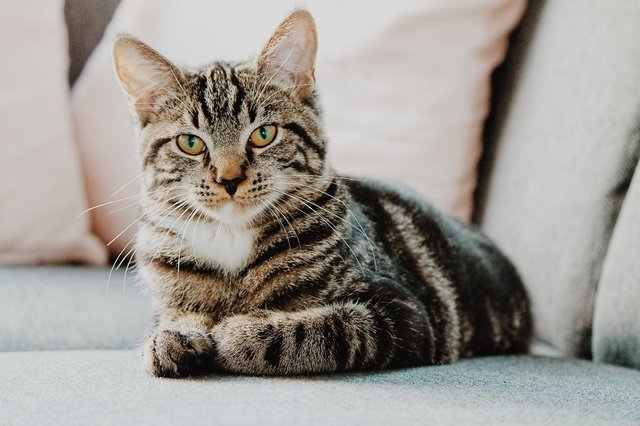Geriatric Feline Health Care Tips

Image Source: Unsplash User Erik-Jan Leusink
As a cat gets older, sometimes various health issues arise. Cat owners can prevent or treat these problems by providing a healthy environment.
For fans of felines, chances re that their homes are shared with at least one cat. The aging process isn't something to be encountered with sadness or pity, because if the cats don't feel sorry for themselves, owners shouldn't either! However, there are some ways to make the aging process easier for both parties.
So, if you're the owner of a geriatric cat, how can you make sure that your cat is aging in a healthy manner? First of all, check the cat for any irregularities such as bumps, or loss of hair in patches. The most noticeable thing to be aware of is changes in behavior. Is the cat sleeping too little? Does the cat seem more lethargic than usual? These are some of the symptoms that an owner should be looking out for.
Addressing Mobility and Diet Issues
If you've noticed that your geriatric cat is starting to have problems climbing the stairs, you should make sure that the cat is placed in an area where stairs are not a necessary factor to get to the essentials. Keep the litter box and food all on one level so that the cat can easily reach both. Also, as the cat ages it might have trouble jumping up on couches to relax, so get a large kitty bed or pillow and create a comfortable area for the cat on this same level/floor area.
Another option is to get ramps for the areas of the home that the cat has trouble reaching. Like humans, as cats age they can be prone to arthritis, which is a common cause of decreased mobility. If you think your cat is arthritic, don't give the cat pain medication unless it has been prescribed by your trusted veterinarian.
Calorie intake for cats generally remains the same throughout adulthood. While middle-aged cats face the risk of obesity, older cats often start losing weight as part of the natural aging process. The digestion process slows down, and cats need food that's easier on their stomachs.
Appearance Considerations
Whether your cat is longhaired or shorthaired, throughout its life you've probably at least periodically been brushing its coat to prevent excessive shedding and hairballs. As a cat ages, hairballs can be particularly distressing for them, so it's important to continue brushing them gently, yet thoroughly.
If you're noticing that your cat's coat has lost some of its luster, it could indicate a nutritional deficiency, so your veterinarian might prescribe fatty acid supplements. Noticing that your cat has dandruff? Again, regular brushing might help, especially since it can stimulate your cat's sebaceous gland, which can disperse natural oils throughout the coat.
Two other things that you'll need to look out for in your geriatric cat are dental and vision problems. Actually, dental problems can be a concern at any point in a cat's life, but are understandably more prone to occur with advancing age. Getting your cat used to periodic teeth cleanings can be immensely beneficial in terms of preventative care. As for vision concerns, if you notice pupil irregularities and/or cloudiness, have a veterinarian evaluate your cat for the possibility of cataracts.
Whether your cat's aging process is minimal or pronounced, it's important to give the cat its space and let it come to you for affection. Remember, as your cat eases into its twilight years, the aging process can be easier on both of you with extra doses of patience and love!
ฅ/ᐠ-ᆽ-ᐟ\